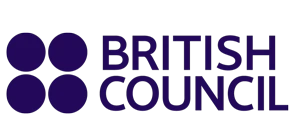Studying in the United Kingdom requires a strong command of the English language. All international students must demonstrate their proficiency in English to ensure they can understand lectures, participate in seminars, complete written assignments, and integrate effectively into academic and social life.
Universities use standardised English language tests to assess applicants, and the UK Home Office also requires English proof for student visa applications. Therefore, understanding these requirements is essential for a successful admission and visa process.
Who Needs to Show English Language Proof?

Most non-native English speakers are required to submit proof of English language proficiency when applying to a UK university or college. You may be exempt from this requirement if:
-
You’re a national of a majority English-speaking country (e.g. USA, Canada, Australia, New Zealand, or some Caribbean nations)
-
You’ve recently completed a qualification taught in English in a recognised English-speaking country
-
You are applying to a foundation or pre-sessional English course before your main degree
Always check the specific exemption criteria for both your university and visa application.
Accepted English Language Tests in the UK
UK universities accept a wide range of English language qualifications. Below are the most common ones:
IELTS (International English Language Testing System)
-
Widely accepted by all UK universities and the UKVI (UK Visas and Immigration)
-
Two formats: Academic (required for university) and General Training
-
Score ranges from 0 to 9
-
Minimum score: Usually 6.0 to 7.0 overall, with no band below 5.5
TOEFL iBT (Test of English as a Foreign Language – Internet-Based Test)
-
Accepted by many universities (not all UK visa applications)
-
Minimum score: Usually 80 to 100, depending on the course level
-
Each section (reading, listening, speaking, writing) must meet the specific minimum
PTE Academic (Pearson Test of English)
-
Recognised by most UK universities and some visa routes
-
Score range: 10 to 90
-
Undergraduate courses: typically minimum 55–60
-
Postgraduate courses: often a minimum of 60–70
Cambridge English Qualifications
-
C1 Advanced (CAE) and C2 Proficiency (CPE)
-
Universally accepted for university admission
-
Valid indefinitely
-
Commonly accepted grades: Grade C or above
Duolingo English Test (DET)
-
Accepted by an increasing number of UK universities
-
Online and affordable, taken from home
-
Score range: 10 to 160
-
Minimum accepted: Usually 95 to 120, depending on the institution
⚠️ Note: UK student visa (Student Route) applicants must take a test recognised by the UKVI if not exempt. Not all tests are valid for visa purposes.
Undergraduate vs Postgraduate Requirements
Undergraduate Programmes
-
IELTS: Overall 6.0 or 6.5
-
TOEFL iBT: 80–90
-
PTE Academic: 55–60
-
Some courses like Law, Medicine, or Education may require higher scores (7.0+ IELTS)
Postgraduate Programmes
-
IELTS: Typically 6.5–7.0 overall, sometimes with no component below 6.0
-
TOEFL iBT: 88–100
-
PTE Academic: 60–70
-
Programmes in Business, Health, or Journalism may demand stricter criteria
Pre-sessional English Courses
If your English level is slightly below the required standard, many universities offer pre-sessional English courses (usually 6 to 12 weeks) before the main programme begins. These help students:
-
Improve academic English
-
Learn university study skills
-
Adjust to the UK education style
Upon successful completion, you can enter your chosen degree course without retaking IELTS.
Tier 4 / Student Route Visa English Requirements
For visa purposes, students must prove their English level matches the UKVI standards. This is especially important if:
-
You’re applying for a course below degree level
-
You’re not going through a university that is a licensed visa sponsor with its assessment methods
Minimum visa English levels:
-
CEFR Level B2 for degree level and above
-
CEFR Level B1 for below degree level
Accepted tests for visa purposes include:
-
IELTS for UKVI (Academic or General Training)
-
Trinity College London (for some visa types)
-
PTE Academic UKVI
Universities with Highly Trusted Sponsor status may assess your English proficiency internally for degree-level courses.
How Long Are Test Scores Valid?
-
IELTS, TOEFL, and PTE: Valid for 2 years from the test date
-
Cambridge (CAE/CPE): Valid indefinitely
-
Duolingo: Valid for 2 years, but acceptance varies per institution
Always ensure your score will be valid at the time of enrolment and visa application.
Tips for Preparing for English Tests
-
Start early: Give yourself 3–6 months of preparation
-
Practice academic English: Focus on essay writing, listening to lectures, and speaking fluently
-
Take mock tests: Get familiar with the format and timing
-
Use official prep materials: Most test providers offer sample tests and study packs
-
Consider a preparation course: Many language schools and online platforms offer targeted help
Common Mistakes to Avoid
-
Taking the wrong test format (e.g. IELTS General instead of Academic)
-
Using an expired score
-
Assuming Duolingo is accepted everywhere
-
Ignoring the minimum band score per section
-
Not checking visa vs university requirements separately
Conclusion: Getting Your English Right is the First Step
English proficiency isn’t just a formal requirement—it’s the foundation of your academic success in the UK. Understanding the test options, preparing thoroughly, and matching your course and visa requirements will smooth your path toward a top-tier UK education.
Whether you’re aiming for a Russell Group university or a specialised arts college, strong English skills will boost your confidence, open academic doors, and enhance your entire study abroad experience.
Need help selecting the right course, test, or pathway? Book a free consultation today.









